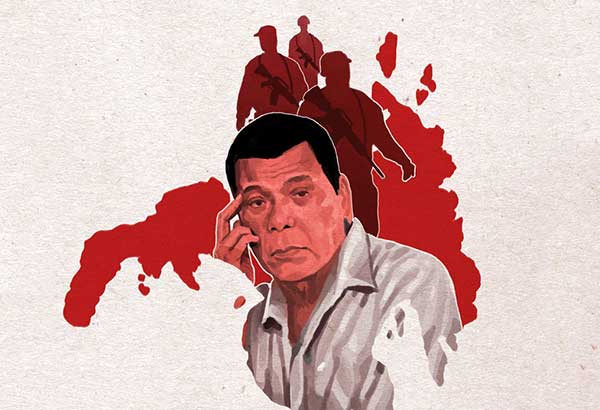Martial law in Mindanao has always been problematic. It is the collision of two realities that many of our decision-makers, and even academics, have hardly understood: martial law and Mindanao.
Many people here in Mindanao understand the concept of martial law as the mere presence of military checkpoints and the police actively roving, in camos instead of their usual blue uniforms. They guard mall entrances, churches on Sundays, and government offices, heavily armed with M16s strapped over their shoulders instead of the usual pistol clipped to their belts. They keep their vehicles idled, stationed beside schools, clubs, and street corners with their siren lights on even in the morning. To them, it means sharing the road with M35 5-ton trucks and finding them lined up in the same gas stations you go to. Drunks, minors, and late night drivers don’t get arrested for violating the curfew, though. Generally, here in northern and northeastern Mindanao (that’s Cagayan de Oro, Gingoog, Butuan, Surigao, Bayugan, San Francisco, Prosperidad, and Bislig cities, as I have kept myself mobile in the past 66 days) there is a semblance of peace. It is an ironic kind of peace as it is largely aided by arms, all in all projecting an absence of conflict coupled, however, with an unspoken anticipation for terror.
As early as martial law’s first week, I made the necessary adjustments to these changes. Based here in Agusan, I secured an ID from the university where I work and I’ve allocated an additional 10-15 minutes in my commute which, since the 23rd of May, has required me to cross the checkpoint at the city’s border. Some checkpoints would have amplifiers and megaphones with some soldiers assigned to repeat announcements on the mic and traffic vehicles to their designated lines. Personnel assigned to these checkpoints have to have pleasing personalities and ready smiles to flash. All days this week, checkpoints in our area have been manned mostly by women officers.
There are days when the lines would be long and the police would ask all passengers in all buses, jeeps, multicabs (mini-jeeps), and vans to come down, walk through the checkpoint, to be screened one by one. So far, I’ve never heard of anyone being asked to step out of their cars. Those who have no valid IDs are required to sign a logbook. And there are many here who, for all their lives, were never issued one or have lost the validity of theirs; farmers, blue collar workers, geriatrics, OSYs, etc.
These are not human rights abuses. But as the days go by, the patting down has a glooming, wearying effect, especially when so many “feel safer” because of it. The imposition is bad enough, the approval is even worse. It’s as if we, Mindanawons, need this state-enforced violence to keep ourselves sane and in check.
Also by virtue of martial law being declared over the entire island, it no longer matters where in Mindanao you are from. It is the second largest land division in the Philippines, only 153 sq. km. smaller than Luzon. Sometimes we forget that Mindanao is being populated by a “tri-people”: the Christians, the Muslims, and the Lumads. Some have argued that there are even more ways to view Mindanawons. But martial law discards all that and says that all Mindanawons must be under one rule. It is a deceptive and divisive logic, and may do more harm in the long run.
I am afraid that martial law will not remedy this land that I find seems to be lorded over by those who exert power, assert dominance, and somehow influence people. Instead, it might reinforce the faulty system in place. The military will neither dismantle private armies, nor will it castrate warlords, nor will it stand on its own two feet. Instead, it will cooperate, or even more euphemistically “work hand in hand” with established powers, with foreign armies, to subdue the threats. And once that’s done, those who have lorded over these lands will have garnered even more power. That, or new monsters, new orders take their place. Make no mistake, however, there will be no change. This is what happens when we continue to build on the blood spilled in fighting.
It can either be a systematic cure or a longer-lasting curse. It is not the mere setting up of checkpoints. Far from it, martial law is the submission to military rule, a devolution to the primitive belief of follow-or-die.


